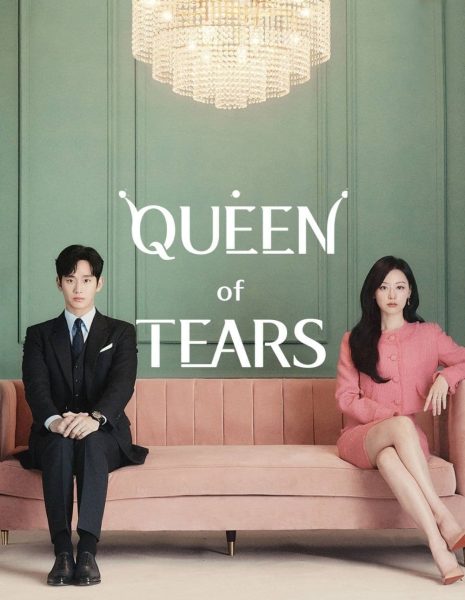Body image: “what a concept”

Physical appearance is usually one of the first things people notice about someone.
In today’s society, the pressure to be skinny has metamorphosed into the pressure to be “fit”. As a result of these societal pressures, more and more girls attending York House have incorporated working out into their overwhelmingly busy routines.
“Nowadays, being a ‘stick’ is no longer considered desirable. There seems to be a lot of girls in the Upper West Side striving for a ‘fit’ and muscular body, instead of a bony one,” a grade ten York House student expressed.
While exercising on a regular basis may not be a bad thing, many girls today are harming themselves through compulsive exercise.
“Exercise addiction is a modern phenomenon, triggered in part by our individual chemistry and in part by the ridiculous standards of perfection our society places on young teenage girls,” according to Ph.D. Karen Hylen.
The advertisements and images with thin, lanky models bombarding teen girls every single day distorts her view of what her body should look like, provoking an obsessive interest in exercise that may not have been pre-existing. The results can have a devastating impact on a teen girls’ health, both mental and physical.
Body image in recent years has become more and more relevant as society focuses on exterior appearances, marketed by ads, campaigns, and social interaction. Women and men have become increasingly sexualized by the media and are used for endorsement opportunities, even to sell irrelevant products such as energy drinks. As a consequence, young people of today are becoming more self-conscious on their own body image. Within St. George’s School, students are also becoming more body conscious because of interactions with women outside of the school. Although teachers do not openly advertise the weight room to students, rises in number of students working out daily and emphasis on a fit body is slowly creeping up through the cracks. Moreover, the school store now offers blender bottles for post-workout protein shakes.
(St. George’s teacher, Mr. Aidan Docherty, weighs in on body image)
Since the late 1800’s people have been experimenting with various means of muscle growth and ‘self improvement’ all in search of that magic product that will instantly make someone beautiful and desirable. Ever since that time people have been using drastic and unhealthy measures to achieve what they see perpetuated in advertising around them. They use methods such as steroids or human growth hormone which we know is unhealthy and ultimately not worth the risks. Increasing numbers of people are leaning towards things like supplements and protein shakes instead of drugs and hormones. Granted, protein and supplements are far less dangerous than steroids but we still do not know the long term effects of the use of these substances. More prevalent, is the use of popular diets to try and reach a perfect body. What young woman hasn’t bowed to peer pressure and put herself on a diet of some description in order to lose those few pounds, even if it’s only for a short period? It is not the chemicals or the act of dieting that is the problem, it is the mindset that you cannot be loved, desired or valued if you do not fit into a pre-defined body shape. It is subtly dangerous because it is not overt. No one tells young people that they will be a failure at love and life if they do not fit societies body image, but the popular media certainly does. The only way to effectively combat this fantasy is education in schools including honest conversations with other students of the opposite sex. This way people can see that while body image is one factor in attraction, it is by far not the most important.
(St. George’s students, Ian Meikle and Jason Morris (grade 12), offer their thoughts on working-out)
The society that we live in constantly exposes us to images from the media of the “thin ideal” female body image. We are continuously being influenced to think of these slim, airbrushed bodies as the most desirable and attractive, when in reality they are almost impossible standards to meet. When people fail to replicate these artificial and unattainable examples of perfection, they may feel disheartened. A study from the University of Minnesota shows that these sociocultural pressures have been linked with bodily comparison and dissatisfaction, as well as low self-esteem, depressive symptoms, and even bodily harm. A grade 10 student at York House school comments, “when I see an image of a Victoria’s Secret model, I automatically make it my goal to try look like that because they just look so pretty and perfect. But then I go home and eat a bunch of ice cream and realize that thats never going to happen. It makes me feel sad.” But what if we changed people’s perception of the ideal body? Research from Southern Methodist University suggests that women are more likely to feel good about their bodies when under the impression that men desire larger physiques. It was proven by three studies that after viewing images of larger women who were portrayed as attractive to men, the women were more satisfied with their bodies. By changing society’s conception of the perfect female body, we can alter how women feel about their body images.

Daniel is currently a grade 10 student at St. George's School. He joined St. George's in grade 7 and is loving every moment of it. He is an active member...

Kai is a grade 12 Student at St. Georges School. He has been attending Saints since Grade 7 and has loved every second of it. Before Saints he attended...

Zachary is currently a grade twelve student at St. George's Senior School. He has pursued a variety of interests such as being on the provincial Schoolreach...













